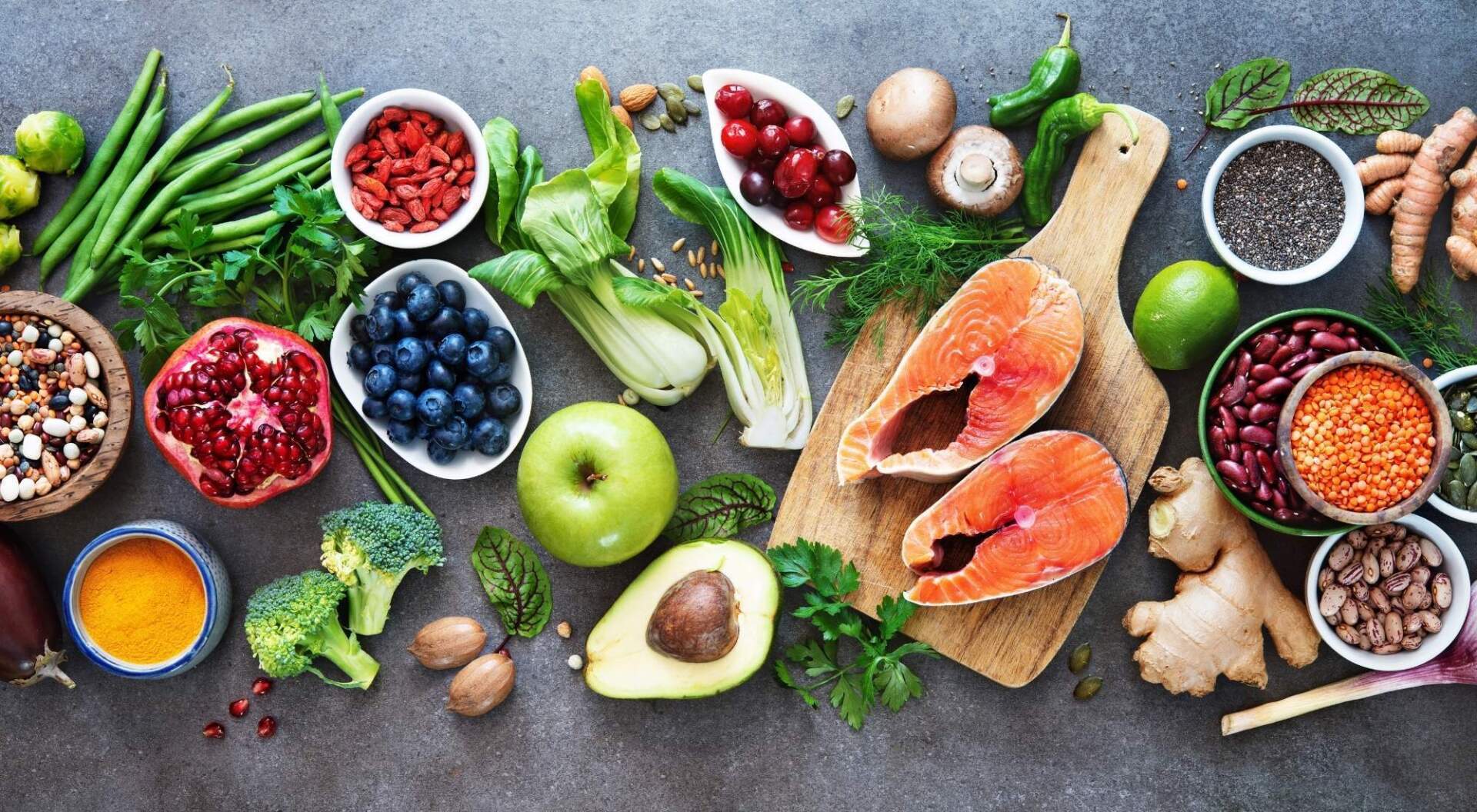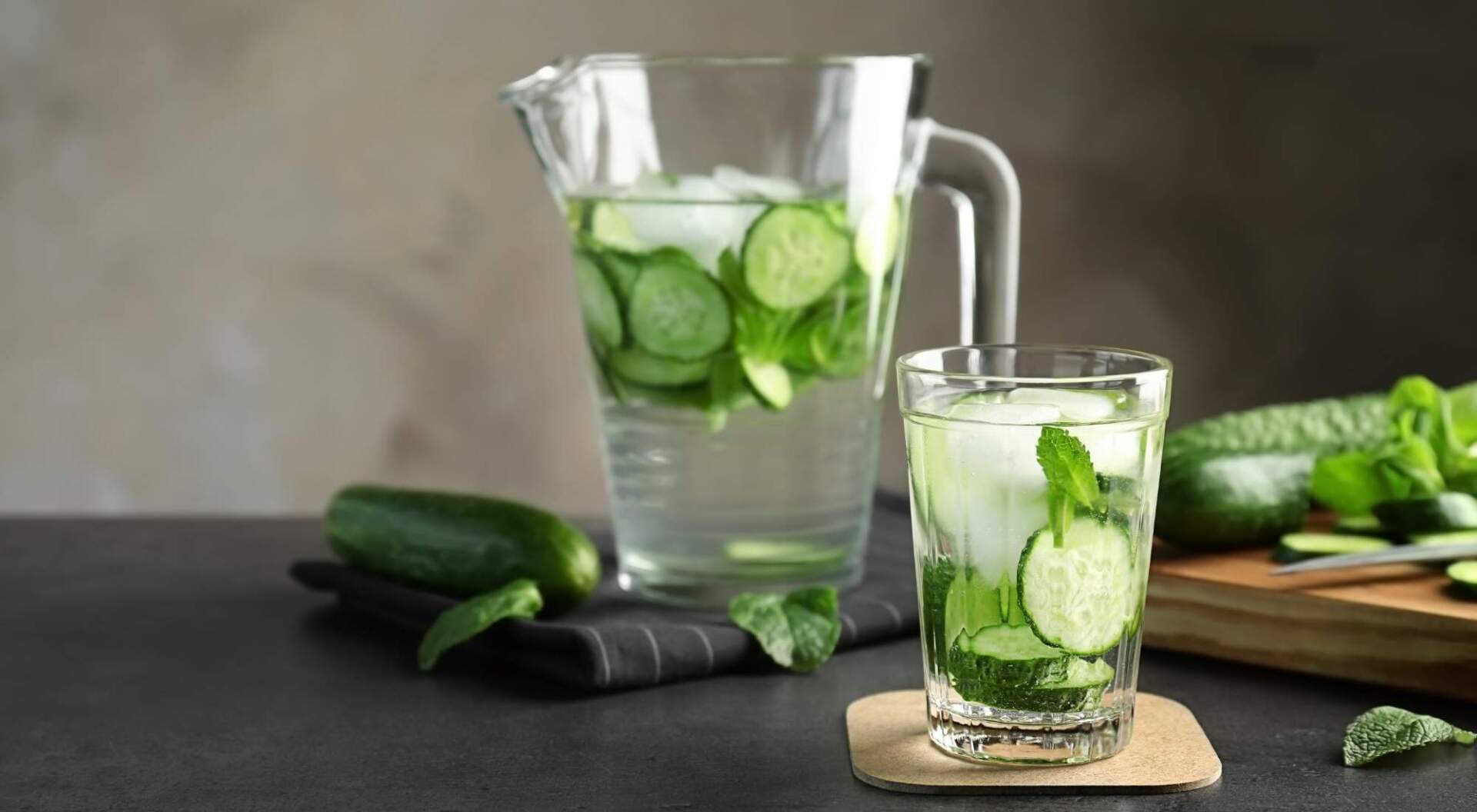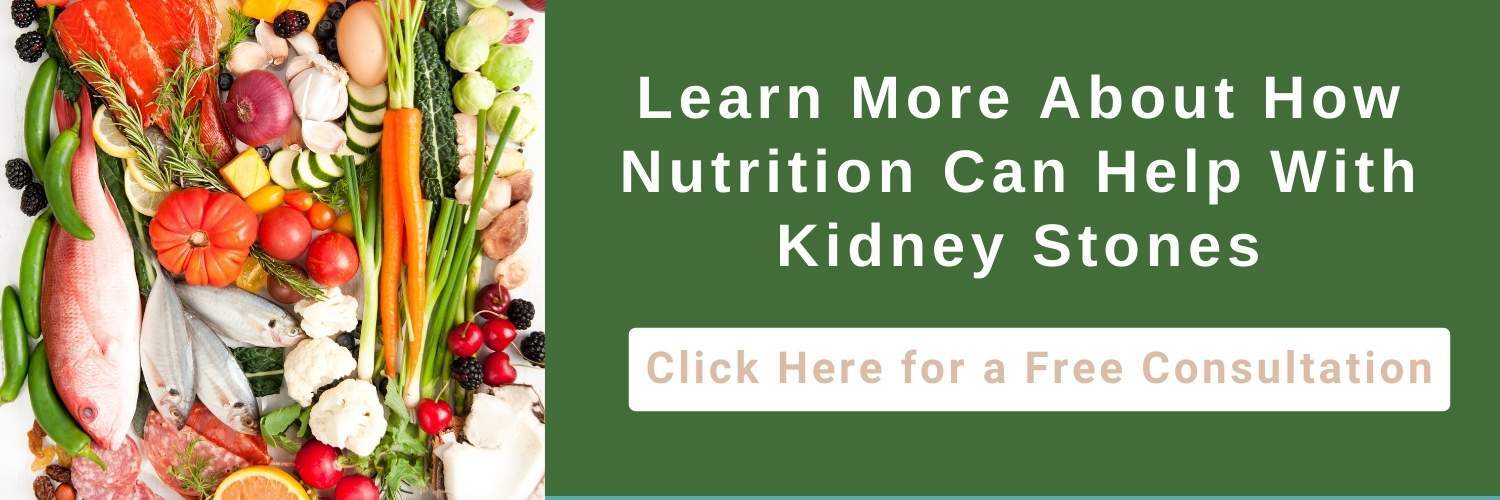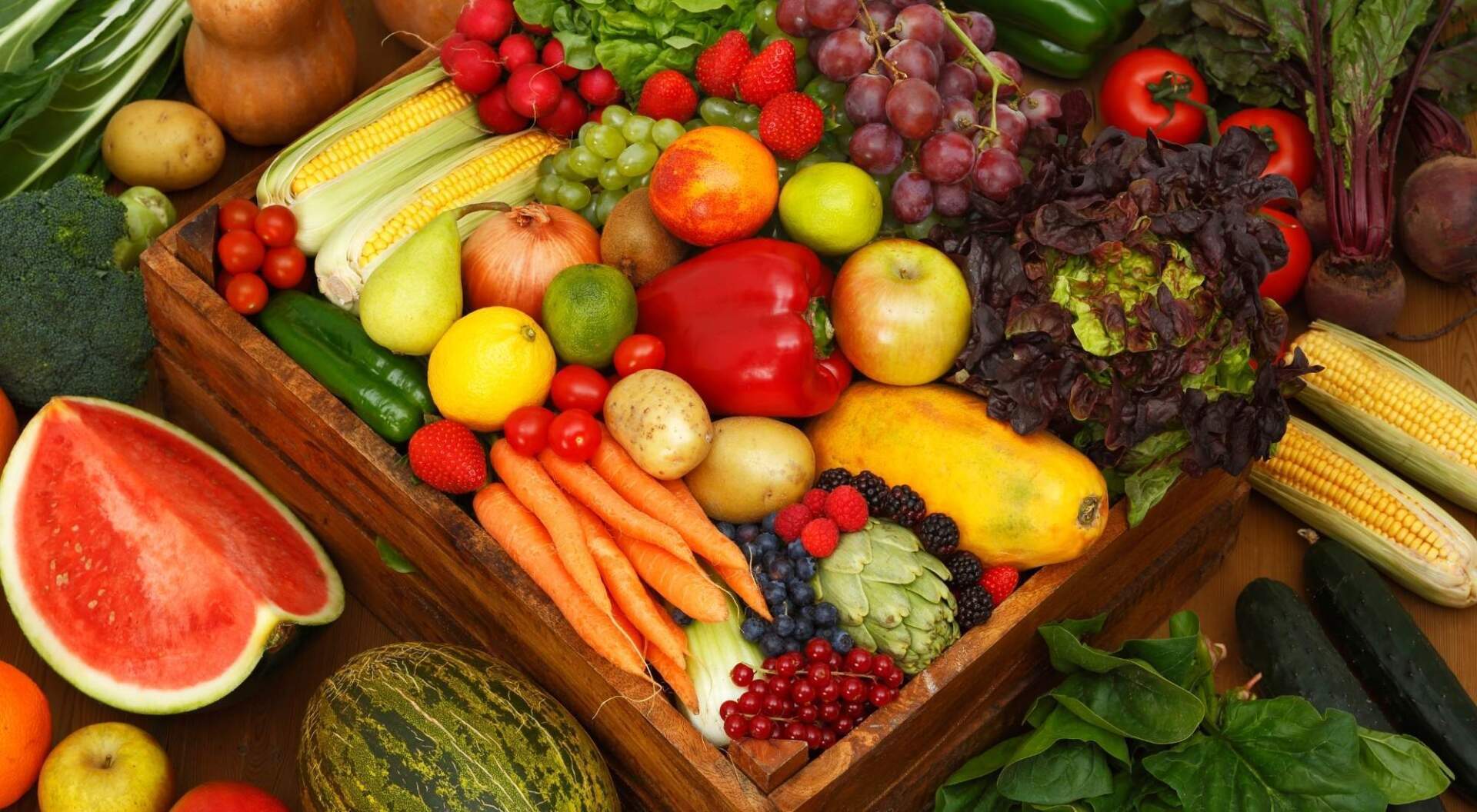Prevent the Pain: Foods Kidney Stone Patients Should Avoid
"The content below is not intended to be a substitute for professional medical advice, diagnosis, or treatment. Always seek the advice of your physician or other qualified health provider with any questions you may have regarding a medical condition."
Severe pain, cramping, nausea, chills, burning urination — the symptoms of kidney stones are uncomfortable at best and can be debilitating at their worst.
Did you know that half of all people who have had a kidney stone are likely to develop another one at some point? If you’ve ever had kidney stones, there’s probably nothing you wouldn’t do to avoid them in the future.
Fortunately, there are ways you can prevent these dreaded crystals.
Keep reading to find out if diet can help prevent recurring kidney stones, a list of bad foods for kidney stones, and more.
Table of Contents
Can Diet Help Prevent Recurring Kidney Stones?
Yes, diet can play a key role in the prevention of recurring kidney stones. Since certain things we ingest contain chemicals that can cause kidney stones to form, it’s important to know which food and drinks to avoid for kidney stones if you’ve had them in the past.
We’ll discuss specific foods to stay away from later, but what about the types of foods you should eat to help with kidney stones?
Studies have shown that a DASH-style diet, which was designed to help people with hypertension, is known to reduce the risk of kidney stones.
But the best thing you can ingest to decrease the chances that your kidney stones will return is plain old water. Keeping your body hydrated by drinking at least three quarts of water per day will stop waste products from getting too concentrated and forming stones.
Tea and coffee count toward your daily liquid goals, but sticking mostly to water is your best bet. If you don’t love the taste of plain water, try adding frozen fruit, a squeeze of citrus, or a few mint leaves to your drink.
Foods To Avoid for Kidney Stones of All Types
If you’re having trouble figuring out what kind of
food to avoid for kidney stone issues, don’t worry — we’re here to help.
There are several different types of kidney stones, but here are some foods
all
kidney stone patients should avoid regardless of type.
Foods High in Sodium
When you ingest too much sodium, it causes calcium to build up in your urine. Then when you eat, any oxalate in your food can bind with the calcium in your kidneys and cause stones to form.
If you want to keep your sodium levels low, stay away from:
- Processed foods like canned goods and packaged meats
- Many condiments
- Certain seasonings
- Some kinds of drinks; and
- Fast food
Most restaurants put a lot of salt in their dishes as well, so if you’re dining out be sure to request that little to no salt be added to your meal.
Many products have a surprising amount of sodium, so try to be hyper-aware of what you’re eating and drinking at all times if you’re prone to kidney stones.
Animal Proteins
There are two different ways that animals proteins can cause kidney stones:
- Many types of animal protein increase the amount of uric acid your body produces.
- Eating large quantities of animal protein reduces the amount of citrate in your urine.
This is a one-two punch to the urinary system because too much uric acid can cause stones and too little citrate means your body has no way to prevent them.
The types of animal proteins most likely to raise your risk of kidney stones are:
- Beef, pork, and chicken
- Organ meats
- Fish and shellfish
- Eggs
- Cheese, milk, and other dairy products
Protein is a vital part of any diet, so try replacing the above with:
- Beans, dried peas, lentils, and peanuts
- Greek yogurt
- Tofu and other soy foods
- Hummus
- Quinoa
- Chia seeds
- Nuts and nut butters
- Sunflower seeds
Be sure to talk with your doctor about your individual protein needs and the best way to go about meeting them.
Additional Foods to Avoid for Kidney Stones Based on the Type of Stone You’re Diagnosed With
Most people have one of the three most common types of kidney stones. Let’s discuss their characteristics and which foods kidney stone patients should avoid for each one.
Calcium Oxalate Stones
More people get calcium oxalate stones than any other kind.
They occur when the calcium in your urine combines with oxalate, the substance we mentioned earlier that is found in many different types of foods.
Foods to Avoid for Calcium Oxalate Kidney Stones
Unfortunately, many of the foods we think of as healthy choices contain oxalate and are not good options for people who have had kidney stones before. Oxalate foods to avoid for kidney stones include:
- Some vegetables
- Sweet potatoes
- Spinach
- Rhubarb
- Beets
- Okra
- Swiss chard
- Raspberries
- Nuts and nut products
- Almonds
- Cashews
- Legumes
- Peanuts
- Navy beans
- Certain starches and grains
- Rice bran
- Buckwheat groats
- Baked potatoes with skin
- Grits/cornmeal
- French fries
- Bulgar
- Millet
- Wheat berries/bran
- Shredded wheat cereals
- Bran cereals
- Miso
- Hot chocolate and cocoa powder
- A few types of flour
- Barley flour
- Brown rice flour
- Soy flour
- Tea
- Stevia sweeteners
As you can see, this is quite a list of bad foods for kidney stones. Fortunately, if you just can’t live without some of these foods, you can reduce the risk they create by eating them with calcium-rich foods.
Despite the name of calcium oxalate stones, eating or drinking calcium does not cause them to form.
In fact, calcium will bind to oxalate during the digestive process and render it harmless before it can reach your kidneys.
Uric Acid Stones
Another common type of kidney stones are those formed from uric acid. Here’s a breakdown of how this happens:
- Susceptible people ingest foods high in purines.
- High purine intake causes the body to make more uric acid.
- The kidneys must excrete this higher acid load, which means the urine becomes more acidic.
- Uric acid stones are more likely to form in the highly-concentrated acidic urine.
Thus, you may be able to prevent uric acid stones by staying away from high-purine foods.
Foods to Avoid for Uric Acid Kidney Stones
To prevent uric acid kidney stones, avoid high-purine foods such as:
- Organ meats
- Red meat
- Meat-based gravies
- Sardines
- Anchovies
- Shellfish
- Beer and alcohol
- Sugar-sweetened food and drinks
Eating fewer animal proteins and more fruits and vegetables should decrease the acidity in your urine and decrease the occurrence of stones.
Calcium Phosphate Stones
Calcium phosphate stones form when the mineral phosphorus combines with calcium in your urine.
Calcium and phosphorus are the two most abundant minerals in the body, but people who are prone to these types of stones should try to cut phosphorus-heavy foods out of their diets.
Foods to Avoid for Calcium Phosphate Kidney Stones
If you don’t want your calcium phosphate kidney stones to return, stay away from:
- Foods high in animal protein
- Organ meats
- Seafood
- Dairy products
- Eggs
- Foods that make urine more alkaline
- Molasses
- Vegetable juices
- Fresh fruit juices (with the exception of orange, cranberry, and nectarine juices)
- Sodium
- Processed foods
- Colas
- Frozen foods
- Lunch meats
- Fast foods
It’s always a good idea to read the labels on processed foods and avoid any that are high in phosphorus.
How to Avoid Foods That Can Contribute to Kidney Stones
Speak to a Health Professional
If you have had kidney stones in the past and want to decrease your likelihood of getting them again, it’s always a good idea to talk to a doctor or other health professional about what to do for your specific type of stones.
With HealthierU’s Nutrition Response Testing, you can pinpoint the cause of your problem and get a plan to help prevent your health-related ailments from returning.
Nutrition Response Testing allows us to find the cause of your symptoms and address them without using traditional medications. Then we’ll design a program just for you that includes:
- Nutritional support
- Lifestyle guidance; and
- Supplementation
Did you know that being overweight
increases
the risk of kidney stone formation? Nutrition Response Testing can also help you pinpoint the causes of your weight gain — it’s not always just eating too much — and give you a plan to get back to a healthier weight.
Plan Meals According to Recommendations
With the lists of foods to avoid above and recommendations from your healthcare professional, you should have a clearer understanding of which foods you should be eating and what foods to avoid for kidney stones.
Use these lists to plan out your meals each week. If you have had kidney stones and don’t want to have them again, you can’t afford to just grab fast food while you’re out and about or make yourself a quick ham sandwich.
Meal planning takes time and effort, but isn’t your health worth it?
Follow the DASH Eating Plan
We briefly mentioned the DASH (Dietary Approaches to Stop Hypertension) eating plan earlier. While it was created for people with high blood pressure, it has benefits for kidney stone patients as well.
The DASH plan recommends:
- Eating whole grains, fruits, and vegetables
- Consuming fat-free or low-fat dairy products
- Including poultry, fish, beans, nuts, and vegetable oils in your diet
- Limiting sugar-sweetened drinks and desserts
- Limiting foods high in saturated fats (full-fat dairy products, fatty meats, and tropical oils like coconut and palm)
Just be aware that, depending on which type of kidney stones you’ve had in the past, you may have to modify this eating plan and remove some of the foods on the list.
Always Review Nutrition Labels
Now that you have a better understanding of what to eat and which foods to avoid for kidney stones, you must be vigilant about checking nutrition labels.
Fresh food is best for the body, but when you need to eat packaged foods just make sure they don’t have any ingredients (or limited amounts of them) that will cause stones to form.
Find Help Managing Kidney Stones With HealthierU
At HealthierU, we believe your body knows what’s wrong with it. We are holistic nutritionists who want to help your body heal the natural way, whether it’s from kidney stones, hormonal imbalance, or a host of other issues.
If traditional medicine hasn’t given you relief from the agony of kidney stones, try:
- Adhering to the dietary guidelines we’ve given you here
- Completing Nutrition Response Testing; and
- Following your customized plan
Contact us for a complimentary consultation today and start living your best life.






